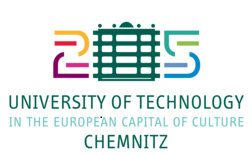An Overview to Private (Foundation) Universities in Turkey from the Terms of Society and Education
DOI:
https://doi.org/10.71514/jssal/2021.9Keywords:
Society, education, higher education, private universities, Turkey.Abstract
In the process of obtaining information, education has significant role. The information is transferred to the individuals through education system within the composition societies made up. The opportunities societies have and informing individuals are provided through public service in the process of educating and teaching. Education within public service is maintained by being divided into different stages and supporting individuals’ social, academic, and cultural achievements more in each stage and preparing the to the upper stage. Universities correspond to the last stage of the process of teaching and educating during which public service is offered. Institutions of teaching and educating offered by universities are serving for public through foundation universities which are at the same status as state universities and private universities and are formed or forming according to the needs of societies. The state and foundation universities at the same level as higher education serve to improve quality of education of the societies, share the information and support its reproduction by using more effectively, support self-improvement of the individuals, help them get a profession. Opened throughout the state, and private universities, it is important to serve the needs of their regions for the same purposes. Particularly in terms of higher education, it offered the possibilities, opportunities, and innovations for individuals, contribute to society and the standard of living will be higher. In this paper, goals which are met through foundation universities which are at the same level as private universities and opened to contribute to state universities in Turkey and to start an era in which education environment is more qualified, are aimed to be evaluated in terms of society and education.
Downloads
References
Akyüz, Y. (2014). Türk EğitimTarihi. (26. Baskı). Ankara: Pegem Akademi
Arap, S. K. (2010). Türkiye Yeni Üniversitelerine Kavuşurken: Türkiye’de Yeni Üniversiteler Ve Kuruluş Gerekçeleri.Ankara Üniversitesi SBF Dergisi, 65-1.
Aşiroğlu, S., & Koç-Akran, S. (2018). Öğretmen Adaylarının Ders Planlarının Ve Öğretim Uygulamalarının Incelenmesi. E-Kafkas Eğitim Araştırmaları Dergisi, 5(3), 1-13.
Ayhan, H. (1995). Eğitim Bilimine Giriş. İstanbul: Şule Yayınları.
Balyer, A.,& Gündüz Y. (2011). Türk Yükseköğretim Yönetim Sisteminde Yök ile Yaşanan Paradigmatik Dönüşüm: Vakıf Üniversiteleri Çelişkisi. SosyalBilimlerEnstitüsüDergisiSayı, 31, 69-84.
Black, D. L., (1990). Logic and Aristotle’s “Rhetoric” and “Poetics” in Medieval Arabic Philosophy, Leiden and Boston: Brill.
Cevizci, A. (2010). FelsefeyeGiriş. İstanbul: Nobel.
Coser, L. A.,& Merton, R.K. (1987). Introduction to Sociology. (2nd ed.) Harcourt Brace Jovanovich, New York.
Devecioglu Y.,& Kurt, İ. (2013). Educating Teachers for The Global World. International Journal of Humanities and Social Science, 3 (19).
Dictionary, Cambridge, http://dictionary.cambridge.org/dictionary/british/society erişim:14.10.2019
Dictionary, Law, http://thelawdictionary.org/society/ erişim:14.10.2014
Dictionary, Oxford, http://www.oxforddictionaries.com/definition/english/society erişim:14.10.2020
Doğan, İ. (2012). EğitimSosyolojisi. (2. Basım) Nobel YayınDağıtım.
Ertürk, S. (1997). Eğitimde Program Geliştirme. Ankara: Meteksan A.Ş.
Fidan, N. (1985). Eğitime Giriş. İstanbul: Alkım Yayınevi.
Fidan, N. (2012). Okulda Öğrenme ve Öğretme. (3. Baskı) Ankara: Pegem Akademi
Güneş, H., &Demirtaş, H., (2002). Üçüncü Bin Yılda Üniversiteler ve Toplumsal Kalkınma. Eğitim Araştırmaları Dergisi, 7 (2).
Gürsel, M.,& Hesapçıoğlu, M. (2008). Eğitim Bilimine Giriş. Konya: Eğitim kitabevi.
Gürüz, K. (2001). Dünya’da ve Türkiye’de Yükseköğretim: Tarihçe ve Bugünkü Sevk ve Idare Sistemleri, Ankara: ÖSYMYayınları-4.
Hesapçıoğlu, M., &Özcan, H. (1995). Türkiye’de Eğitimin Finansman Sorunu. Marmara Üniversitesi Atatürk Eğitim Fakültesi Eğitim Bilimleri Dergisi, Arşiv, 7, (7), 149 – 167.
Hopoğlu, S. (2012). Vakıf Üniversiteleri Ve TRB1 Bölgesinde Vakıf Üniversitelerinin Kurulabilirliği. Malatya: Fırat Kalkınma Ajansı Planlama, Programlama ve Koordinasyon Birimi.
Josept F., (1994). Sosyoloji Nedir? Çev: Çelebi N. Ankara: Atilla Kitapevi.
Küçükcan, T. Gür, B. S. (2009). Türkiye’de Yükseköğretim Karşılaştırmalı Bir Analiz. Ankara: Seta yayınları.
Macionis J. J. (2012). Sosyoloji. Çeviri Editörü:Vildan Akan. Ankara: Nobel
Ozankaya, Ö. (1986). Toplum Bilim. Ankara: Tekin Yayınevi.
Özaslan, İ., Korkmaz, E., Batırel, Ö. F., &Erkal, M. E. (1998). Yükseköğretim Kurumlarının Bölgelerarası Gelişme Farklılıkları Açısından Önemi Ve Işlevleri. İstanbul: İstanbul Ticaret Odası Yayını.
Özden, Ü. H. (2008). Veri Zarflama Analizi (VZA) ile Türkiye’deki Vakıf Üniversitelerinin Etkinliğinin Ölçülmesi. İstanbul Üniversitesi İşletme Fakültesi Dergisi,37, (2), 167-185.
Özgüven, N. (2011). Vakıf Üniversitesi Tercihinin Analitik Hiyerarşi Süreci ile Belirlenmesi. Dumlupınar Üniversitesi Sosyal Bilimler Dergisi, 30, 279-290.
Russell, B. (2001). Eğitim Üzerine. (Çev.Nail Bezel). İstanbul: Say Yayınları.
Sönmez, V. (2017). Öğretim Ilke ve Yöntemleri. Ankara Anı Yayıncılık.
Söyler, İ.,& Karataş, S. (2011). Türkiye’de Özel Yükseköğretim Kurumlarının Kuruluşu ve Finansmanı. Maliye Dergisi, 160, 57 – 71.
Sözer, A. N. vd., (2002). Dokuz Eylül Üniversitesi Sosyal Bilimler Enstitüsünde Lisansüstü Eğitim Kalitesinin Artırılmasına Yönelik Bir Alan Araştırması. DokuzEylülÜniversitesiSosyalBilimlerEnstitüsüDergisi, 4(2), 41-65.
Streetman, W.C., 2008, “‘If It Were God Who Sent Them …’: Aristotle and al-Fārābī on Prophetic Vision”, Arabic Sciences and Philosophy, 18, 211–246.
Tatlıoğlu, İ. (1990). YükseköğretimdeFinansmanSorunuveBorçlanmaYöntemi. YayımlanmamışDoktoraTezi, UludağÜniversitesiSosyalBilimlerEnstitüsü.
Tezcan, M. (2010). EğitiminToplumsalTemelleri. EğitimBilimineGiriş. (7. Baskı). (ed:VeyselSönmez). Ankara: Anı Yayıncılık.
Töremen, F. (Ed.) (2013). EğitimBilimineGiriş. (2. Baskı). İstanbul İdeal KültürYayıncılık.
Yaşar, B. (2001). VakıfÜniversitelerinin Türk YükseköğretimSistemindekiYeri.YayınlanmamışDoktoraTezi. Gaziantep Üniversitesi.
YÖK. https://www.yok.gov.tr/universiteler/universitelerimiz erişim:21.10.2020
Downloads
Published
How to Cite
Issue
Section
License
Copyright (c) 2021 İbrahim Kurt

This work is licensed under a Creative Commons Attribution-NonCommercial 4.0 International License.
The work is made available under the terms of the Public Offer and the Creative Commons Attribution 4.0 International License (CC BY 4.0). This license allows anyone to reproduce, distribute, and adapt the material in any medium or format, including for commercial purposes, provided that proper credit is given to the creator(s) and the original source.












